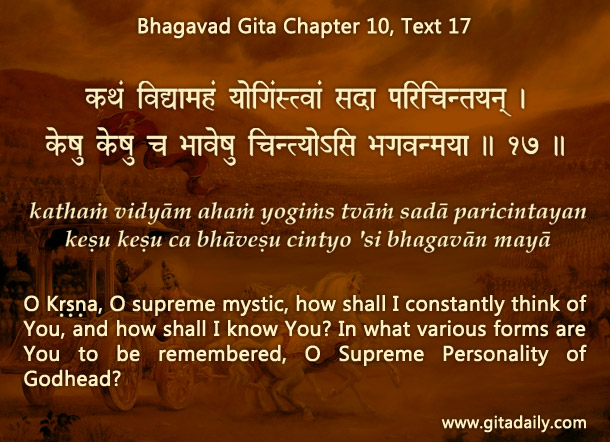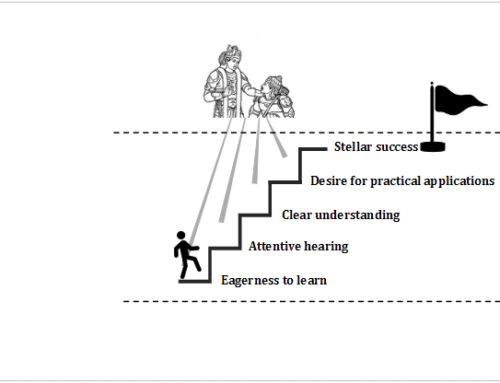Suppose we are offered delicious food. If we are hungry, we will relish the food and also digest it well, thereby gaining strength.
Similarly, when we receive spiritual knowledge, curiosity acts as the digestive enzyme for assimilating that knowledge. The curiosity needed is not just intellectual – signifying our eagerness to learn – but also transformational, signifying our eagerness to live what we learn.
Such transformational curiosity is evident in the Bhagavad-gita’s tenth chapter. Therein, Krishna explains the Gita’s essence in four verses (10.08-11). Confirming the conclusive nature of this section, Arjuna accepts Krishna’s supreme position (10.12-13) as well as Krishna’s explanations about that position (10.14).
If Arjuna had been seeking knowledge nominally, he could have ended the discussion here. But his curiosity to live what he had learned inspired him to ask: while living in this material world, how can we contemplate the transcendental Lord? (10.17) This question arises from the Gita’s injunction to always contemplate Krishna (10.08-09), and it leads to Krishna speaking the section expounding his delightful immanence (10.19-42). In fact, Krishna speaks most of the remaining Gita chapters because Arjuna asks questions about various concepts relevant to living spiritually in the material world.
Similarly, while learning spiritual knowledge, if we question ourselves – how can I live what I am learning? – that curiosity guides us towards many insightful realizations, from both outer observation and inner reflection. Such insights provide us the strength to apply what we learn.
After asking this question (10.17), Arjuna underscores the joyousness of devotional curiosity (10.18): he longs to hear Krishna’s glories elaborately, for they are unendingly sweet. Similarly, when we fuel our spiritual study with devotional curiosity, Krishna’s glories that are intrinsically inexhaustible will become for us inexhaustibly relishable.
Thus, curiosity for Krishna paves the way to not just profound insight, but also sublime taste.
To know more about this verse, please click on the image
Explanation of article:
Podcast:



Curiosity leads to consciousness